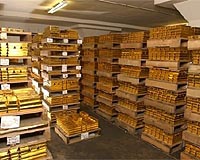 |
Tokyo (AFP) April 19, 2011 Foreign tourists remain a rare sight more than a month after Japan suffered the most powerful earthquake in its history, as the nation grapples with power cuts and radiation leaks from a nuclear power plant. April should be peak tourist season for Tokyo, famous for the brief but spectacular blossoming of its cherry trees, which signals the start of spring. But in Asakusa, one of the capital's oldest districts and home to the Senso-ji temple, a major tourist draw, there are no foreign faces to be seen. "Before the earthquake, Asakusa was quite touristy and very well-known to foreigners," rickshaw driver Yoshiaki Suzuki told AFP. "But since the quake, and the accident at the Fukushima nuclear plant, you no longer see them." Japan suffered its largest ever decline in foreign visitors last month in the wake of the devastating earthquake and tsunami, which left around 28,000 people dead or missing and tens of thousands more homeless. Foreign governments urged their citizens to stay away, some even chartering planes to fly people out of Tokyo as the crisis at the Fukushima Daiichi nuclear plant threatened to spiral out of control. Around 560,000 hotel reservations have been cancelled nationwide, according to government figures, which do not include the worst-hit Iwate and Chiba prefectures. But as travel warnings issued in the chaotic days that followed the March 11 disaster are eased, many people in Japan say they hope the tourists will soon return as a show of support for the disaster-stricken country. "Foreigners think it is dangerous here, with the earthquake and the nuclear accident. Japan is safe. Tokyo is safe," said Uko Komatsuzaki, head of public relations for Tokyo's renowned Imperial Hotel. "In the disaster zone in Tohoku, people are working together and are doing all they can to rebuild and recover. From my point of view, it would be nice if foreigners came back to Japan to show their solidarity." Komatsuzaki said only around 40 percent of rooms at the Imperial Hotel, which famously survived the 1923 earthquake that destroyed much of Tokyo, were filled -- half the usual occupancy at this time of year. Japan's tour guides have been particularly badly hit by the crisis -- so much so that they have launched a YouTube campaign to try to convince foreign visitors to return. "At the moment I am living off my savings, but if this carries on, I won't be able to be a tour guide," said Tomoyuki Nagano, a professional tour guide of 10 years who has not had any work since March 11. "I had six trips booked in 60 days. All of them have cancelled... We have to live with the crisis. But western Japan is unaffected so people can still come to Japan." The few tourists who have decided to brave the threat from the many aftershocks that continue to shake the capital say they have been welcomed with open arms by the Japanese people. "They're very positive towards us. They're very happy to see us. We've actually had people speaking to us more this time than when we travelled (to Japan) a year ago," said Krystyna Andrzejewski, visiting from Britain with her father. Before the disaster struck, Japan set itself a target of attracting 11 million foreign visitors, hoping to offset a declining domestic market caused by a sluggish economy and a greying population. That now looks impossible after official figures showing the number of foreign visitors halved last month. But Kimu Yazawa, also a rickshaw driver in Asakusa, remains hopeful. "There are fewer customers, but I'm not too worried," he said. "With the cherry blossom season they will return."
Share This Article With Planet Earth
Related Links Global Trade News
 Argentina digs for gold with Canadian help
Argentina digs for gold with Canadian helpBuenos Aires (UPI) Apr 18, 2011 Argentina has secured $850 million of Canadian private sector investment in an ambitious plan to develop its gold reserves and turn gold production into a major earner for the country. Argentina traditionally has been a medium-scale gold producer, compared with Latin America's top producer Peru, but is seeking change in an overall plan to turn around its mineral development and producti ... read more |
|
| The content herein, unless otherwise known to be public domain, are Copyright 1995-2010 - SpaceDaily. AFP and UPI Wire Stories are copyright Agence France-Presse and United Press International. ESA Portal Reports are copyright European Space Agency. All NASA sourced material is public domain. Additional copyrights may apply in whole or part to other bona fide parties. Advertising does not imply endorsement,agreement or approval of any opinions, statements or information provided by SpaceDaily on any Web page published or hosted by SpaceDaily. Privacy Statement |